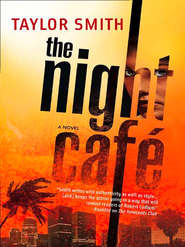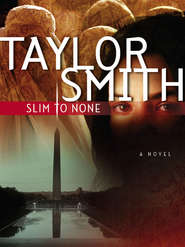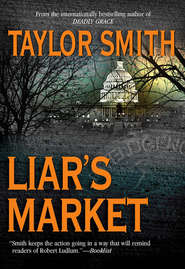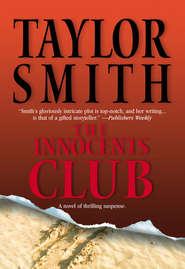По всем вопросам обращайтесь на: info@litportal.ru
(©) 2003-2024.
✖
Guilt By Silence
Автор
Год написания книги
2018
Настройки чтения
Размер шрифта
Высота строк
Поля
Pflanz squeezed the rubber ball tighter. “Nothing’s going to go wrong, George. Not,” he added pointedly, “like that mess in Vienna.”
There was a long sigh on the other end of the line. “Hell, don’t talk to me about that. We’re still cleaning up.”
“What about the woman? She’s back in operation now?”
“She’s nothing to worry about.”
“She hasn’t made the connection?”
“No. She’s off the file and preoccupied with her family. Trust me—Mariah Bolt poses no threat to us.”
“She’d better not,” Pflanz growled. “All right, look—I’ll call you when I get in tomorrow.”
“No. Call me tonight, when you hear from New Mexico.”
“It’ll be late.”
“You’ve got my home number. Call. I’ll be up till I hear.”
“Roger.”
Pflanz cradled the receiver and closed the cabinet housing the secure phone. Then he leaned back and watched the sun sinking lower toward the Pacific.
A big man, with a hawk’s beak for a nose and hands like bulldozer shovels, Pflanz still looked at forty-nine as if he belonged in jungle fatigues instead of the corporate uniform that he mostly wore these days. Despite the suit, though, no one would mistake him for anything but a security man—the ever-watchful, hooded eyes missed nothing. His massive shoulders hunched forward, giving him the appearance of a bird of prey poised for takeoff.
He had spent a quarter of a century mounting complex security operations, first as a CIA covert operative, then as chief of security for McCord Industries. McCord’s head office was in Newport Beach, California, with subsidiaries in eleven American cities and fourteen other branches worldwide. It was a multifaceted business with diverse interests ranging from electronics to construction engineering, with dozens of difficult foreign projects that sometimes demanded special arrangements to ensure the safety of the employees. And the extracurricular activities of the company’s president and CEO, Angus McCord, added yet another dimension to Pflanz’s security duties.
You have to pay attention to detail, he told himself again—even the tiniest. That’s the key to success. You can’t leave anything to chance because it’s the little things, the loose ends, that are sure to foul you up. Despite the assurances on the other end of the line a moment earlier, he’d been convinced all along that the Vienna episode had left too many loose ends—loose ends that he himself had already begun to tidy up.
Rollie Burton’s battered green Toyota was parked across the road and down the street a little way from Mariah’s condo in McLean, but the town house was still dark. He had lost her in heavy rush-hour traffic outside the nursing home, but from the look of things, he had beaten her here. When he finally spotted the Volvo coming up the street, the sight of two figures in the front seat gave him a jolt. He peered closely as the car passed under a streetlight. Oh, shit, he thought—she’s got a kid. The voice had conveniently neglected to mention that.
The garage door began to rise as the Volvo approached the driveway. Burton slumped in his seat, tugging a baseball cap low over his eyes, watching the car pull into the garage. The brake lights flashed and then went dark as she killed the engine. Inside the lit garage he could see an interior door leading into the town house. When the automatic door began to drop, Burton glanced at the sweep hand on his watch: It took about five seconds to close.
The garage was on the side of the house facing the street, he noted, taking careful stock of the landscape. There was a cedar hedge running along one side of the driveway, with open lawn extending down to a cross street on the other. No prying neighbors. He nodded in satisfaction—good cover and a quick escape route.
The front door was around the corner of the town house, facing a footpath. It was part of a network of well-treed walkways and ravines that ran throughout the parklike condominium complex, radiating like a spiderweb from a recreation center at the hub. The trees were mostly evergreens, pine and spruce, casting deep shadows. Good possibilities there, too, he thought. Maybe she was a jogger. Burton loved joggers.
Then he pursed his lips, weighing the problem of her daughter. Nobody was paying him for the kid, and he had no intention of getting caught. But if he ever was—God forbid—he knew what happened to prison inmates who offed kids. On the other hand, he could wait forever to catch her alone at home.
First the reporter, now this—I don’t need this kind of grief, he thought, exasperated. Why can’t things ever be as simple as they seem?
Gathering up her briefcase, Mariah again resisted the temptation to carry in Lindsay’s books, walking ahead into the house as her daughter reached into the back of the car for her things. By the time Lindsay came into the kitchen, Mariah had already opened the freezer and was examining the neat piles of plastic storage containers, their contents labeled and dated, part of the determined effort she had been making in recent months to try to get the chaos of her life under control. She withdrew a chicken cacciatore left over from one of the double-size recipes she prepared on weekends, put it into the microwave and shrugged out of her coat. She fixed Lindsay with a frown as the girl stood poised to drape her own jacket over a kitchen chair. Lindsay sighed deeply, rolling her eyes. Mariah pursed her lips, then held out her hand for the jacket that Lindsay handed over with a winning smile.
The rewinding hum of the answering machine greeted Mariah when she returned from the hall closet. Lindsay was hunched over the kitchen counter, pen poised as the machine began to play back messages. Typically, they all seemed to be for her. It was a mystery how, after a full day spent together, so much urgent business could accumulate among a bunch of thirteen-year-olds in the two short hours since junior high had been dismissed. Mariah set a pot of water to boil for the pasta as a string of disembodied adolescent voices crackled across the kitchen. Just as she began chopping vegetables for the salad, the machine beeped again and Mariah froze at the sound of a deep, professionally modulated voice.
“Mariah? It’s Paul Chaney. I’m staying at the Dupont Plaza. I’m only in town for a few days, but we really do need to talk. Call me, please.” He gave a room and phone number before ringing off.
Lindsay was madly writing down the numbers as the message ended and the machine rewound itself. “Mom! That’s the TV guy who used to play hockey with Daddy in Vienna, isn’t it?”
Mariah nodded, then turned back to chopping vegetables. It was the last message on the machine—he must have headed straight for a phone as soon as she left him at the nursing home. The knife came down hard as she slashed at a piece of celery. “Time to wash up for dinner,” she said.
“Are you going to call him, Mom?”
“I doubt it. Can you set the table, please?”
“Why not?”
“The table, Lindsay.”
“Okay, okay. I’m setting.”
Lindsay limped over to the cupboard and began taking out dishes. Mariah watched her daughter’s slim shoulders as she reached for plates. Coppery curls tumbled down the back of the girl’s gray sweatshirt. During the ten months Lindsay had been recuperating—first in a wheelchair, then, until recently, in a leg brace and hunched over crutches—she had grown phenomenally. Now that she was upright again, it came as a shock to Mariah that this child—her baby—had already surpassed her own five foot two and might even overshoot David’s five-eight.
She’s no baby anymore, Mariah thought—not after everything she’s been through—and she doesn’t deserve this dismissive exercise of parental authority. She closed her eyes briefly and took a deep breath. “I’ve got a ton of work at the office, honey. I just don’t think I’ve got time for Mr. Chaney this week, that’s all.”
“It sounds kind of important,” Lindsay said, setting out plates and cutlery. “I mean, he seemed really anxious for you to call.”
“I hardly know the guy. And to be perfectly honest, I never thought much of him when we were in Vienna, even if he was your dad’s buddy. Anyhow, he’s probably just calling to be polite. Reporters,” she added scornfully, “they make everything sound like a national crisis. I’ll call if I get a minute, maybe.”
Lindsay shrugged and Mariah changed the subject as they moved to the table.
The evening, as always, passed in a weary blur of homework and piano practice, housework and laundry. It was nine-thirty when Mariah went into Lindsay’s room to encourage her to pack it in for the night. The lights were on but Lindsay was in bed under the covers, her eyes closed. In one hand she held David’s old harmonica. Mariah stood for a moment watching her, swallowing the lump she felt rising in her throat.
The radio was vibrating with an insistent beat, the bass turned up to the max. Mariah reached over to lower the volume and then moved around the room, picking up discarded clothes with a sigh and depositing them in the laundry hamper before turning back to the bed. Posters of rock stars and TV idols stared down at her, strangely juxtaposed with others of puppies and kittens. Old stuffed toys took up so much of the bed that Mariah always wondered how Lindsay managed to turn over at night. Despite regular urging that she cull the herd, however, Lindsay insisted that every one of the fuzzy creatures was indispensable.
Bending over the bed, Mariah tried to remove the harmonica without disturbing her, but Lindsay’s eyes opened, glistening, as soon as Mariah touched her hand. She sat down on the edge of the bed, reaching out to stroke her daughter’s cheek. “Is your leg bothering you?” Lindsay nodded miserably. “I’ll get you some Tylenol and the heating pad,” Mariah said, rising.
“Mom?”
Mariah had been moving toward the bathroom, but she stopped and looked at the girl.
“I miss Daddy so much,” Lindsay whispered, tears washing over her dark eyes.
Mariah sat back down and wrapped her daughter in her arms, rocking her gently and stroking her hair. As the child sobbed, her own chest and throat ached with the effort of holding back tears. “I know, Lins,” she whispered. “So do I.”
Lindsay buried her face in her mother’s shoulder. As her crying subsided, she caught her breath in great, shuddering sighs. Her voice, when it came, was muffled against Mariah’s body. “I have such awful thoughts sometimes. I know I should be thankful we weren’t killed. But when I think about Daddy—how he is now, in that place,” she said, pulling back and looking down guiltily, “I feel so angry. Sometimes I even hate him—and then I hate myself for feeling like that.”
Mariah stroked her hair. “It’s normal to feel angry, honey. What happened in Vienna isn’t fair. It’s horrible and not fair—to you, to me and especially to Daddy. Can you imagine how much he wants to be here with us?” Lindsay nodded. “But sometimes life isn’t fair—you just found that out sooner than most kids. It won’t always feel this bad, I promise. Just give it some time. And you know what?” she added, lifting her daughter’s chin. “I couldn’t have handled what happened to you and Daddy if you hadn’t been such a terrific kid. I’m proud of you, Lins—and I’m so glad you’re my daughter.”
Lindsay’s lip quivered even as she smiled, and she threw her arms around her mother’s shoulders. They held on to each other for a little while. Then Mariah tucked her securely under the covers. “You’d better get some sleep if you’re going to go back tomorrow to battle Megan the tyrant. Let me get your tablets and heating pad.”
When Mariah turned out the lights a few minutes later, her daughter was snuggled under the blankets, hugging a bald teddy bear and looking calmer. Mariah kissed her, then stepped out of the room and closed the door behind her.
Moving into the living room, she settled wearily onto the sofa and opened her briefcase, pulling out a stack of magazines and press clippings. The best part of highly classified work was that it wasn’t supposed to be brought home, however hectic things might be at the office. While Mariah could use her evenings to catch up on press speculations on her most recent area of study—the interwoven networks of international terrorism—the top-secret reports to which she had access at the Central Intelligence Agency weren’t something to be left lying around on coffee tables. Spot checks of briefcases at the agency’s exits ensured that overzealous employees didn’t attempt to carry out the crown jewels.
She started to read a few press clippings, but found it impossible to focus on the printed words. The feeling was rising in her again—the gut-wrenching anxiety that she tried to block out by concentrating on Lindsay and the daily effort to rebuild some normalcy in their lives. Why did Paul Chaney have to show up today, after all this time? What kind of game was he playing now? Why would he say it wasn’t an accident when she knew for a fact that it was?
She had told Chaney only part of the truth, of course. He had no idea of her CIA connections nor that the Company, and not just the embassy, had gone over David and Lindsay’s accident with a fine-tooth comb to rule out any possibility of foul play. And although Mariah had been too busy running between hospital rooms to take part herself, someone she trusted absolutely had seen to it that no stone was left unturned in the Company’s investigation of the disaster. No, Mariah thought, the bottom line is that Chaney doesn’t know what he’s talking about.











